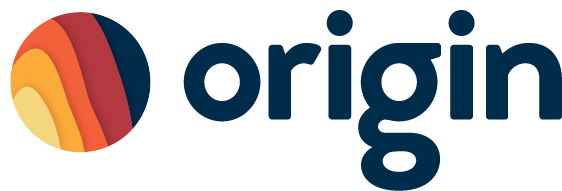IFrames and SEO don’t go together like you’d hope they would. See, Iframes impact your site’s SEO negatively. We noticed tour operator websites with bookings embedded in an iFrame weren’t showing in Google results. In other words, booking pop-ups installed on sites hindered their SEO.
We copied text inside the popup window and pasted that in Google. Nothing came up. We researched further and we’re convinced you should not use iframes on your site.
We want our clients to succeed. With that, we want their websites to be discoverable through Google search results. Because of this, in this article, we will:
- Define an inline frame aka iFrame
- Clarify Google crawling
- Outline Google indexing
- Explain how this may impact your SEO
- Provide you with an alternative
- Show you that iframes and SEO don’t work all that well together
Automate Your Tasks
Tour operator life is complicated Use a booking platform that simplifies it.
Automate Your Tasks
Tour operator life is complicated Use a booking platform that simplifies it.
What Does Iframe Mean?
W3 Schools says, “An inline frame is used to embed another document within the current HTML document.” Put simply, an inline frame, or iframe, allows you to embed a web page within a web page.
It’s a way to embed and isolate third-party content onto another website.
A known example of this is when you visit a site and see a Google map or a video from YouTube embedded on the site. Both of those instances use iframes in their embed code.
The problem with iframes is that the parent page cannot alter the code within the iframe.
What Is Google Crawling?
A web crawler, (a.k.a spider, spiderbot, or crawler) automatically browses all publicly-available webpages on the internet. Crawlers review each page and linked page to determine what it’s about and index it in Google search results.
Crawlers “pays special attention to new sites, changes to existing sites, and dead links.” This means that you want to make sure your site is continuously updated and you fix any broken or dead links.
Site owners can prevent Google from “crawling” their website by using a “robots.txt” file.
What Is Google Indexing?
Once the spider crawls your website, they send the information back to Google’s servers. Google looks at information like keywords and how updated the site is, then they store it in their index.
Think of it as an index in the back of a book, but this one has billions of entries and it’d be a pretty big book.
IFrames And SEO: Does It Affect Google Indexing?
This is what Google says about iFrames:
iFrames sometimes display content on web pages. Content within iFrames may not be indexed and available to appear in Google’s search results. We recommend that you avoid the use of iFrames to display content. If you do include iFrames, make sure to provide additional text-based links to the content they display, so that Googlebot can crawl and index this content. — Google Search Console Help
It’s possible iFrames affect Google indexing. Because of this, using them may impact your Search Engine Optimization (SEO).
We tested Google’s assertion on the Denver Aquarium. They offer otters, sloths, and porcupines encounters. When we typed “denver aquarium otter meet and greet,” into the Google Search Bar, their listing didn’t show.
Unless your website has duplicate text outside of the iFrame, it won’t show up in Google search results.
This is a crucial problem with iFrames and SEO. Not only does this particular example demonstrate that iFrames can negatively affect Google’s indexing and a site’s SEO, but if a potential customer cannot find your listings on a standard search, you’re missing out on opportunities. You become undiscoverable.
How Does This Impact Tour Operators/Providers?
The potential negative SEO impacts of an iFrame installed on your website outweighs the benefits.
Tour Operators Won’t Rank For Content Inside an IFrame
When Google robots crawl your website, they treat the inline frames like an outbound link, attributing any information within the iFrame to the original source. That means any keywords used in the tour description are not associated with the operator’s website. Instead, Google will treat the keywords as a different source.
Curator.io suggests to avoid using iFrames on pages you want to rank for or consider important, like your homepage.
You’ll Have To Double Your Work
If you use iFrames on your site, especially on your homepage, you have to do double the work. In short, you have to add your content inside and outside of the iFrame to rank in Google search results.
Inline frames don’t make tour operators’ lives easier when they have to duplicate information to show up on Google results.
You Might Not Be Able To Track Conversions
Moz’s Whiteboard Friday covered “Pop-Ups, Overlays, Modals, Interstitials, and How They Interact with SEO.” They describe how to tell if a modal/popup/overlay/iFrame is impacting the user experience:
- Bounce rate
- Browse rate
- Return visitor rate (% of people who come back to your site)
- Time on site (after element appears)
To track across inline frames, you need to “use JavaScript to load the iFrame and pass in the cookie information using the ‘_getLinkerURL()’ method,” according to Google. If you’re not a web developer, this sounds like a lot of work.
If you’re unable to track conversions, how will you know what’s working and what isn’t?
The Solution
It’s simple. Stop using iFrames on your websites. Instead, use a simple tour guide and operator booking software like Origin. We don’t use complex code, overlays, iFrames, or pop-ups. Instead, we’ll replace links in your existing buttons and pages during a quick setup. That’s it.
Every listing on Origin has its own dedicated web page optimized for SEO. Google will index your pages and you will keep your earned SEO. You can continue to track conversions and bounce rates. No iFrames and SEO improves.
We cut out duplicate work and confusing code and we get you out the door to lead your tours.
Automate Your Tasks
Tour operator life is complicated Use a booking platform that simplifies it.
Automate Your Tasks
Tour operator life is complicated Use a booking platform that simplifies it.








